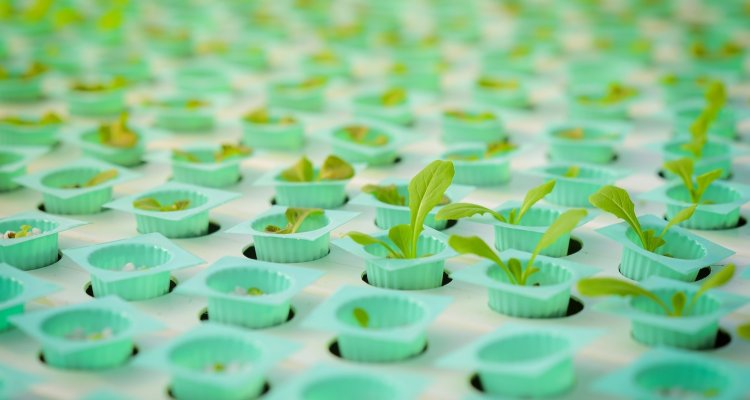
Strategy and Policy Development for Renewable Plastics
Due to significant global challenges, such as tackling climate change and reducing environmental pollution, the plastics industry needs to undergo a substantial transformation. Important partial solutions include plastic recycling, minimizing the use of plastics, reusing plastics, and also using alternative (non-fossil) raw materials for plastic production.
Wageningen Food & Biobased Research is developing new insights into the plastic transition that are based on the desired end goal (backcasting) and that consider important objectives (preventing climate change and environmental pollution) and approaches (designing for recycling).
Embrace a Sustainable Plastic Revolution
In today's dynamic plastics industry, stakeholders ranging from manufacturers and consumers to waste management experts and policymakers are all seeking sustainable solutions that make both environmental and business sense. To navigate this rapidly evolving landscape, it's crucial to have a comprehensive understanding over the entire plastics supply chain and its environmental impacts, enabling you to make informed decisions that drive profitability.
Consider these critical questions:
- Which biomass feedstocks offer the utmost sustainability and suitability for your operations?
- Can recycled materials be seamlessly integrated into your products, ensuring a reliable supply of recyclates for the future?
- What is the difference between biobased and certified biobased materials and what are the implications for the sustainability of a solution?
- Explore the various applications for biodegradable plastics and their potential benefits.
- Identify the most effective incentive measures to adopt sustainable plastic solutions.
There's no one-size-fits-all solution in this arena. Instead, you need tailored, expert advice at a product level. Our cutting-edge models provide unique insights, empowering your business to lead the change in the sustainable plastics revolution.
Expertise across the entire plastic lifecycle
At Wageningen Food & Biobased Research, our knowledge extends across the entire plastic lifecycle, encompassing everything from raw materials to end products, even including the waste management phase. This depth of understanding helps us to generate new insights into the transition towards a sustainable circular plastics industry. These insights, in turn, serve as valuable guidance for businesses and policymakers, aiding them in setting priorities, formulating strategies, and making decisions that align with sustainability goals.
Our studies range from broad, high-level analyses to highly specific assessments at the material or product level. We employ a diverse array of methods, including multidimensional sustainability analysis, life cycle assessment (LCA), sustainability indicators, and material flow analysis.
Furthermore, we actively engage with industries and the global community. We deliver keynote lectures at conferences both domestically and internationally, sharing our vision for sustainable circular plastic chains. We also facilitate dialogues with various stakeholders across different value chains through workshops and discussions, fostering collaboration and knowledge exchange in pursuit of a more sustainable future.
Developing strategy and policy
In collaboration with Invest-NL, Wageningen Food & Biobased Research has formulated a strategy for the implementation of PolyHydroxyAlkanoates (PHAs). This strategy encompasses not only considerations regarding raw materials but also delves into the distinctive properties of these innovative plastics. The recommendation is to commence with applications where biodegradability confers a significant advantage.
Furthermore, Wageningen Food & Biobased Research conducted an in-depth study on various sustainability aspects of biobased plastics for DG Environment (EU). This study serves as a basis for shaping new European policies aimed at promoting the use of sustainable biobased plastics.
Another example involved the thorough examination of plastic packaging recyclability within the Dutch market on behalf of NVRD. This research provides a comprehensive overview of the current status and elucidates the challenges on the path toward the goal of ensuring that all packaging is recyclable by 2030.
Explore the opportunities
Do you have questions about the transition to a circular plastics chain? Do you have ambitions or plans to make the plastic industry more sustainable? Are you looking for help developing a plastics strategy? We invite you to reach out to us, free from any obligation. We're enthusiastic about providing assistance, whether it's through a customized study, impartial advice, or a productive workshop.